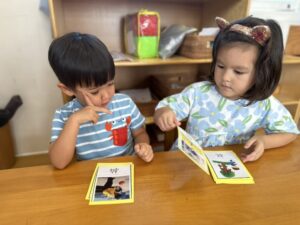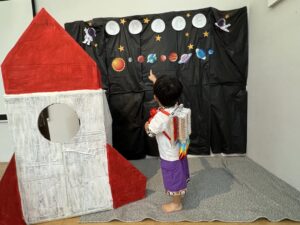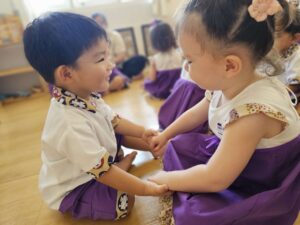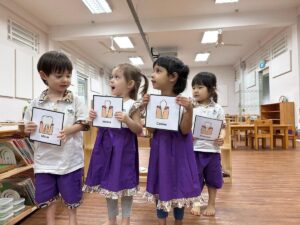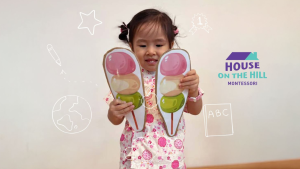“Education is not something which the teacher does, but that is a natural process which develops spontaneously in the human being.” – Dr. Maria Montessori
4 Beautiful Locations Islandwide
In a Montessori environment, the role of a teacher extends far beyond the traditional understanding of educational instruction. Montessori teachers are integral to nurturing your child’s learning journey, offering a transformative impact that supports long-term growth and development. Unlike in the traditional school setting where teachers might focus primarily on directive teaching, Montessori teachers serve as guides and facilitators, fostering a child’s natural curiosity and ability to learn independently.
Becoming a Montessori teacher involves more than obtaining an academic degree; it requires a profound dedication to the Montessori principles of respecting each child’s individual learning path. This dedication is evident in their commitment to fostering academic skills and the holistic development of each child’s talents and abilities.
At House on the Hill, our teachers are not only well-versed in early childhood education but are also deeply passionate about supporting each child’s journey towards achieving their highest potential. Our experienced and qualified teachers are aligned with our core values, ensuring a consistent and enriching learning environment that adheres to the Montessori method and philosophy.
The Role of a Montessori Teacher
In traditional educational settings, teachers often adopt a more structured and directive role, guiding children through a defined curriculum. This approach focuses on achieving specific learning outcomes through direct instruction. Meanwhile, Montessori teachers embrace a more fluid and adaptable role by facilitating a prepared environment wherein children can learn at their own pace.
Below are the roles of a Montessori Teacher:
Guide
The Montessori teacher acts as a guide, a role that is pivotal in fostering an environment where children learn to explore and discover on their own. The educator observes each student’s interests and developmental stage, gently steering them towards activities that align with their natural curiosities and learning pace.
Observer
As observers, Montessori teachers carefully monitor each child’s progress and interactions. This allows them to adjust the learning environment and resources to meet individual needs effectively, ensuring a personalised and supportive educational experience.
Facilitator
As facilitators, Montessori teachers provide tools and support, allowing children to engage independently with materials that spark their curiosity. This approach helps children develop critical thinking and problem-solving skills as they navigate their learning experiences independently, guided by the teacher’s expertise.
Parent Partner
At House on the Hill, teachers partner with parents to actively involve them in their child’s learning journey, ensuring regular communication and valuable feedback on their child’s progress and informed on themes and subjects explored. We also provide parenting support, resources, and workshops, along with opportunities to attend school events, all designed to create a supportive and connected parent community.
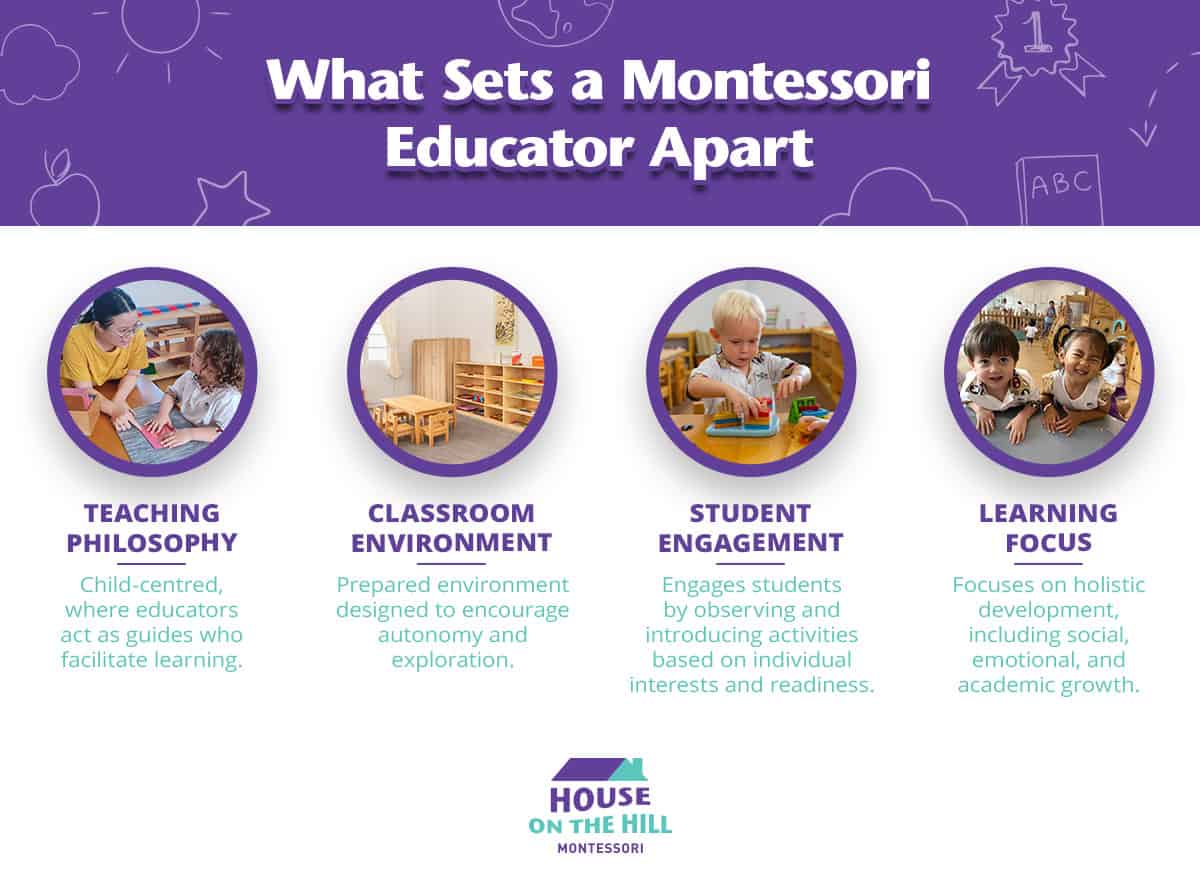
How a Montessori Teacher Transforms a Child’s Learning
By donning various roles in the classroom, Montessori teachers transform the learning experience from mere instruction and rote memorisation into a dynamic and interactive journey. They create an environment where children are encouraged to explore, question, and discover through guided inquiry.
Montessori teachers provide an array of meaningful choices and tools that inspire effort and engagement. Their role is to carefully observe each child, understand their individual needs, and create an environment that fosters increasing independence. This approach helps children develop the ability to meet their own needs, form their own values, and shape their own lives.
Igniting natural learning
When Montessori teachers encourage children to connect with their environment and the materials provided, it sparks a natural and intrinsic desire to learn. This approach emphasises the importance of respecting and nurturing each child’s curiosity and drive for exploration.
Encouraging independence
Dr. Maria Montessori believed, “The greatest sign of success for a teacher… is to be able to say, ’The children are now working as if I did not exist.” The teachers build personal connections with each child and observe them closely to understand their individual needs. Once a child is inspired to engage independently with a material, teachers give them the space to work and start preparing for the next exciting step in their journey of achievement. This nurturing of autonomy builds confidence and cultivates a lasting sense of independence that benefits children as they grow.
Promoting social harmony
Montessori education focuses on group learning and creating a cooperative atmosphere. Montessori teachers facilitate lessons in a way that promotes social harmony, leveraging the benefits of mixed-age classrooms. This approach enhances collaboration skills across different age groups and nurtures a supportive and inclusive learning environment.
Developing practical life skills
At House on the Hill, we emphasise the importance of essential activities, enabling children to develop practical life skills that are integral to everyday living. Our practical life exercises focus on the care of self and routine daily activities, fostering independence and building self-esteem. Through these experiences, children not only gain lifelong skills but also grow in confidence, becoming more capable and self-reliant.
Preparing for primary school and beyond
Montessori teachers at House on the Hill prepare the children for the next milestone in their academic journey early, to help them develop greater confidence and better social skills as they make the transition into formal schooling, whether in local or international settings. The Montessori curriculum builds foundational academic, social and emotional skills that will benefit children in the long term. The Montessori teachers provide essential lessons that ensure a smooth and confident transition to primary school, setting a strong foundation for future success. Click here to read how we prepare children for primary school.
Meet Montessori Teachers at House on the Hill Montessori
Discover the dedicated team of Montessori teachers at House on the Hill Montessori by scheduling a visit. Our teachers are passionate about nurturing each child’s unique talents and skills, which are essential for everyday living and future success. During your visit, you’ll have the opportunity to see firsthand how our teachers support and encourage your child’s natural curiosity and development. Join us to learn more about our approach and how we can help your child’s educational journey!

